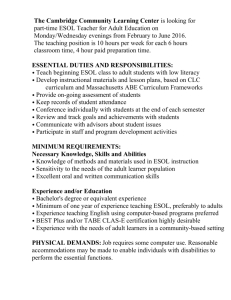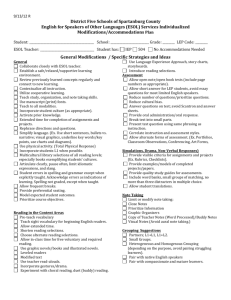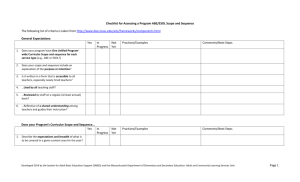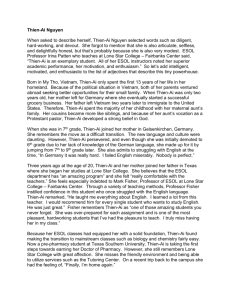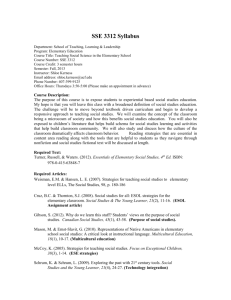Modifications & Accomodations
advertisement
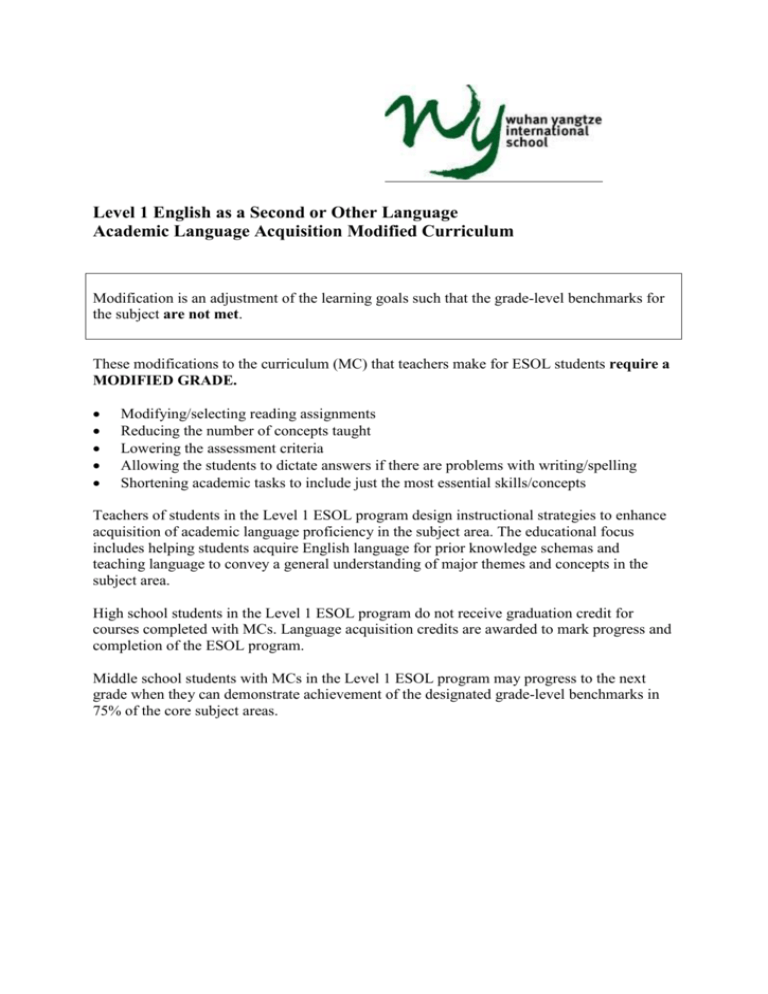
Level 1 English as a Second or Other Language Academic Language Acquisition Modified Curriculum Modification is an adjustment of the learning goals such that the grade-level benchmarks for the subject are not met. These modifications to the curriculum (MC) that teachers make for ESOL students require a MODIFIED GRADE. Modifying/selecting reading assignments Reducing the number of concepts taught Lowering the assessment criteria Allowing the students to dictate answers if there are problems with writing/spelling Shortening academic tasks to include just the most essential skills/concepts Teachers of students in the Level 1 ESOL program design instructional strategies to enhance acquisition of academic language proficiency in the subject area. The educational focus includes helping students acquire English language for prior knowledge schemas and teaching language to convey a general understanding of major themes and concepts in the subject area. High school students in the Level 1 ESOL program do not receive graduation credit for courses completed with MCs. Language acquisition credits are awarded to mark progress and completion of the ESOL program. Middle school students with MCs in the Level 1 ESOL program may progress to the next grade when they can demonstrate achievement of the designated grade-level benchmarks in 75% of the core subject areas. Level 2 and 3 ESOL Support – Accommodations for Content Access Accommodation is an adjustment in the instructional strategy, learning style, and/or assessment method of a particular benchmark, which allows students to demonstrate achievement of the designated grade-level benchmark. These accommodations that teachers make for ESOL students do not require a MODIFIED GRADE. Seating students in the front of the room Giving directions in simplified language Providing graphic organizers or outlines before an assignment or test Providing study guides for tests/quizzes Providing guided reading strategies Providing written copies of assignments Providing extra practice for new vocabulary and concepts Clarifying definitions, terms and vocabulary in assignments Teaching key words/expressions crucial for the lesson/task Stating ideas in more than one way; rephrasing/paraphrasing Providing a folder or notebook system to help student organize work Using a color coding system for overheads, textbooks, and notes to help students categorize information Telling students the purpose of the assignments and the methods/criteria for evaluation Breaking the assignment into smaller parts Arranging for students to read stories/novel/assignments ahead of time so they can keep up Using visual support/props Allowing extra time for assignments and tests Providing alternative assessments that demonstrate understanding of the concepts/ standards taught Shortening the number of items on a test or assignment to reduce repetition Administering assessments in a separate room, at home or in a small group Providing alternative texts that focus on the same skills, information, themes or concepts Giving several short assignments rather than one long one Assigning activities to reduce writing requirements not affecting the students’ ability to meet benchmark goals Allow students to use native language, as well as English language dictionaries, in class Provide good writing samples for reference Allow students to learn concepts in their native language in combination with English language learning Teachers of students with Level 2 and 3 ESOL support use a combination of these accommodations to help students reach and demonstrate achievement of the designated grade-level benchmarks. These are recommended accommodations and are not an expectation that all accommodations be implemented.




